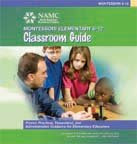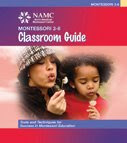Helpful Tips for Successful and Beneficial Montessori Parent Education Meetings
I schedule one-hour meetings with prospective Montessori parents, which include a tour of the classroom and explanation of some of the materials and work habits children learn in the Montessori environment. Parents appreciate the opportunity to learn about the program and how the Montessori philosophy is interpreted at the school. Parents often find this kind of information lacking in many of their tours of other prospective schools.Montessori parent education meetings can vary in format. Most schools like to schedule the meetings in early fall, when parent interest is at its highest. Some schools invite parents to evening sessions for about 1.5 hours each, several weeks in a row. Parents gather in their children's classroom and the Montessori teacher may cover a different curriculum area each week. Another approach is to have a different teacher cover a specific curriculum area. For example, if the five curriculum areas of the Montessori preschool environment are covered in one evening, each teacher repeats his/her specific curriculum presentation to five different groups of parents who rotate through the classrooms. Sometimes it works to have a Saturday morning session followed by a community-building luncheon.
Over the years, I have developed a successful Montessori parent education program whereby the first sessions take place every other week during the first two months of school. These 45-minute sessions are scheduled in the very early evening. My Montessori assistant (along with a helper, if needed) provides child care in the gymnasium or outside for the students and siblings. We provide simple refreshments as many parents arrive straight from work. In each session I present Montessori Practical Life, Sensorial Development, Language, and Mathematics curriculum areas.
In January we schedule a new Montessori parent education series covering the cultural curriculum and specific areas of interest to parents, which often includes general parenting issues. Using Montessori philosophy as the foundation for these discussions, I explain how a trained Montessorian might handle various matters. For example: setting up the home for Montessori Practical Life activities using child-size utensils and tools, low shelves instead of toy boxes, etc. Each meeting covers the Montessori materials, and always includes Montessori techniques such as the three-period lesson, how to roll a mat, how to carry the materials and other nuggets of information to help Montessori parents understand the routines and actions that occur in their children's Montessori classroom.
Related NAMC Blogs:
- Montessori Parent/Teacher Communication and Collaboration: An Education for Life
- Montessori Philosophy - Communicating with Parents
- Parent-Teacher Conferences: The Role of the Montessori Teacher
- Parent-Teacher Conferences: The Role of the Montessori Parent
- Montessori Practical Life Activities, In the Classroom and at Home
- Montessori at Home - How to Create a Prepared Environment
NAMC’s Classroom Guides provide tips, tools and techniques for effective parent communication throughout the year. Order your copy today!



As much as possible, NAMC’s web blog reflects the Montessori curriculum as provided in its teacher training programs. We realize and respect that Montessori schools are unique and may vary their schedules and offerings in accordance with the needs of their individual communities. We hope that our readers will find our articles useful and inspiring as a contribution to the global Montessori community.
© North American Montessori Center - originally posted in its entirety at Montessori Teacher Training on Thursday, November 10, 2011.
© North American Montessori Center - originally posted in its entirety at Montessori Teacher Training on Thursday, November 10, 2011.


0 comments:
Post a Comment
Have questions or comments? Let us know what you thought about this article!
We appreciate feedback and love to discuss with our readers further.